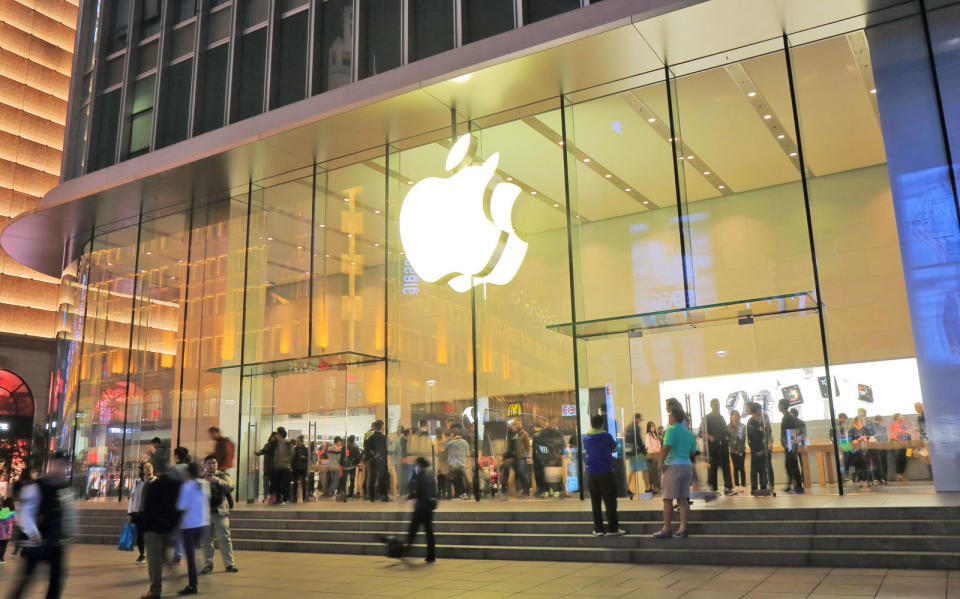iPhones and Apple services fueled the company's biggest Q3 ever
Meanwhile, Mac sales took a nosedive.
The dead of summer doesn't usually make for the most interesting financial statements, but Apple sure has reason to celebrate. Over the past three months, the company has raked a total of $53.3 billion in pure revenue, making this the most lucrative third quarter in Apple's history. But why?
Well, CEO Tim Cook specifically points to strong international sales as a big driver for these numbers: 60 percent of all that money came from sales outside the United States. And, as usual, those people just keep buying iPhones ... though they didn't buy a huge number more than they did this time last year. This past quarter, Apple moved 41.3 million — for those keeping track, the company sold 41.03 million in the year-ago quarter. That said, the iPhones sold this past quarter were, on the whole, quite a bit more expensive: the average iPhone selling price here was $724 (thanks, iPhone X). That's quite a bit higher than last year's figure, but it's basically flat compared to three months ago. While people have broadly embraced more expensive iPhones, the mix of iPhones sold hasn't really shifted since the last time Apple reported its numbers.
The rest of Apple's hardware lineup was a mixed bag. The company sold more iPads this quarter than in the last, thanks in large part to the release of its new, cheap 2018 tablet. That sounds pretty good until you realize that iPad sales are pretty much flat year-over-year. While Apple called the inexpensive 2017 iPad one of its most popular ever, it seems its sequel wasn't massively more exciting to people, even with Apple Pencil support. Oh, and Mac hardware? Sales tanked. The 3.72 million Macs sold over the past three months is 13 percent fewer than last year and is the lowest figure we've seen in this category in a very long time.

That isn't great news for MacBook fans, but the mild revenue slip resulting from Mac sales was easily made up for by big growth in Apple's services segment. This bucket — which accounts for app purchases, Apple Care and more — surged more than 30 percent year-over-year to $9.55 billion. On the customary post-release earnings call, Cook pointed specifically at a surge in subscriptions to Apple services and third-party apps (from which the company takes a recurring cut). And look out, Spotify: Apple Music grew over 50 percent since last year, as did revenues from the company's cloud services.
Meanwhile, the Other Products category (for AirPods, HomePods and their ilk), has jumped 37 percent since this time last year. Apple never really explains how specific products in that bucket contribute to the company's overall performance, but Cook did point out on the call the Apple Watch's growth was "in the mid-40s range" this quarter. AirPods got a nod as well, but let's be real: The company's tiny wrist computer remains the most significant performance driver in this category.
Even though this was a record third quarter for Apple, the really interesting financials are the ones we'll start seeing soon. Apple is widely expected to reveal a trio of new iPhones in a little over a month, signaling the end of the company's long-running smartphone design language. Instead, the aesthetic introduced with last year's iPhone X, complete with that notched display, is poised to become the new normal for all iPhone users going forward. And if all those rumors hold true, the 2018 iPad Pro — which should be unveiled alongside those new iPhones in September — has also received an iPhone X-inspired redesign. (As if we needed another device without a headphone jack.) We're right on the edge of a major shift in Apple's hardware, and even now, trying to predict how readily people will adapt to these changes is like reading especially unhelpful tea leaves.
Apple is right on the edge of something big, too: With today's strong earnings release on the books, it's within spitting distance of becoming first-ever trillion-dollar company. At the time of writing, Apple's stock price is up 7 percent in after-hours trading and continues to rise. Once that stock price hits $203.46 (or thereabouts), the folks in Cupertino will wind up making history once again.



